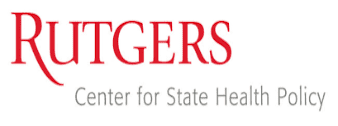

New Jersey has a lot to proud of when it comes to health, including comparatively low rates of smoking, teen births, infant deaths, and premature deaths, and high rates of preschool enrollment and high school graduation. But there are also wide, persistent and in some cases, growing disparities across the state, even in the healthiest counties. These gaps particularly affect people who are poor and people of color, who are disproportionately impacted by discriminatory policies and practices that, over generations, have created barriers to good health. But just as policy actions can create unfair barriers, they also can be used to dismantle them.
Creating health equity through public policies is the focus of this new report, which recommends a comprehensive series of actions that will help to close health gaps, broaden opportunity, and ensure that everyone in New Jersey-no matter who they are, where they live, or how much money they make-can live the healthiest life possible.
Background
Policy Priorities and Recommended Policy Options
Building New Jersey’s Culture of Health requires equity-promoting policies focused on children and families, healthy communities, and high-quality health and social service systems. This report identifies 13 policy priorities for improving health and well-being in the state and recommends a series of specific evidence-based policy options to address these priorities.
Healthy Children and Families
Priority 1: Improve maternal and infant health outcomes by enhancing care, supports, and prevention.
Priority 2: Ensure maximum uptake of the recently expanded paid family leave benefit, particularly among low-income workers.
Priority 3: Increase access to high-quality early education for all of New Jersey’s 3- and 4-year-olds, with a continued focus on children living in poverty.
Priority 4: Boost the incomes of families supported by low- and moderate-wage workers to promote financial stability and economic opportunity.
Healthy Communities
Priority 5: Ensure New Jerseyans have equitable access to safe, affordable, and stable housing in the communities where they choose to live.
Priority 6: Prevent childhood lead poisoning by maximizing state and federal funding and ensuring properties are lead-safe through inspection, remediation, and enforcement.
Priority 7: Expand equitable access to healthy food in communities and schools.
Priority 8: Ensure all roads, sidewalks, and public transit systems are safe and accessible to all potential users.
Priority 9: Reduce tobacco use disparities through price increases and cessation programs.
High-Quality, Equitable Health and Social Service Systems
Priority 10: Shift the health care system’s focus toward delivering whole-person care, working with other systems to promote overall health and well-being.
Priority 11: Ensure access to comprehensive, integrated mental health and addiction services.
Priority 12: Improve access to health and social services throughout the state by leveraging technology.
Priority 13: Foster collaboration within and across state agencies to improve health equity.
Conclusion
Using this policy roadmap as a guide, we call on leaders and residents to work with us to build a Culture of Health in New Jersey. For our part, RWJF will: